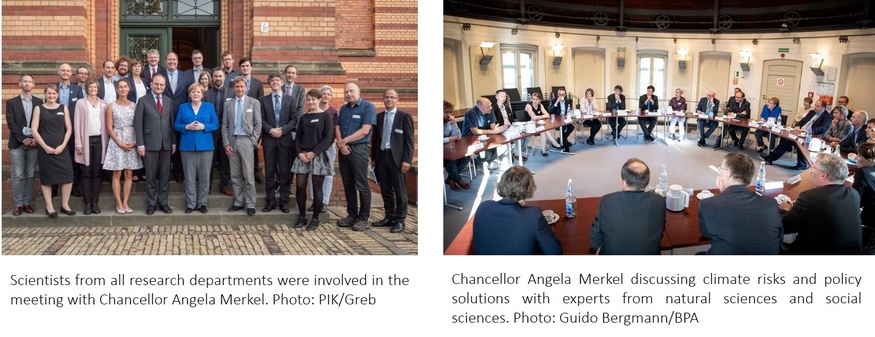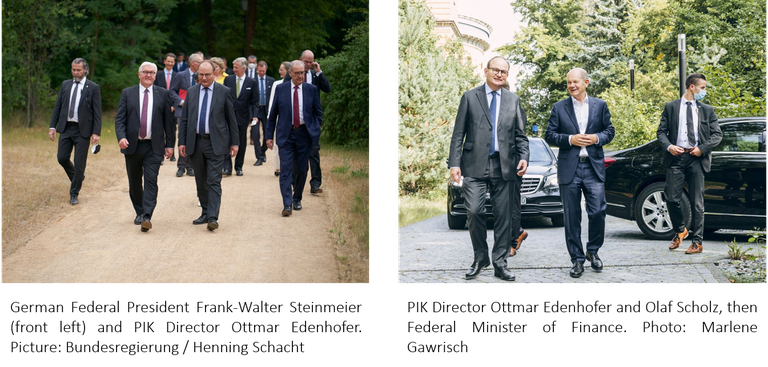It is PIK’s mission to advance the scientific frontier on interdisciplinary climate impact research for global sustainability and to contribute knowledge and solutions for a safe and just climate future. One key element to fulfill this mission is the provision of evidence-based policy-advice to decision makers.
Climate change and its impacts are a global phenomenon – and PIK’s advisory roles aim at all affected levels, from local to national and international.
Rooted in the state of Brandenburg, PIK experts are members of the Advisory Board for Sustainability Brandenburg, the Climate Council of the State Capital Potsdam, or the Forestry Committee of Brandenburg.
PIK scientists advise the German national government as appointed experts on several advisory boards, including the German Advisory Council on Global Change (WBGU), the German Advisory Council on the Environment (SRU), the advisory council for the One Health initiative of the Federal Ministry for Economic Cooperation and Development, the Advisory Board for Spatial Development, and the Science Platform Climate Protection, to name a few.
PIK’s evidence-based expertise has played a major role in Germany’s law on energy transformation and legislation phasing out coal-fired power. Then Federal Chancellor Angela Merkel commissioned a special report from Ottmar Edenhofer and his colleague Christoph Schmidt (at the Leibniz Institute for Economic Research, RWI) on CO2-pricing for the German Council of Economic Experts (“Wirtschaftsweisen”). The report presented a detailed proposal for a price reform, and was the basis for discussions of the climate cabinet and a law putting a price on carbon in the transport and heating sectors.

At the level of the EU and beyond, PIK’s experts are members of the European Scientific Advisory Board on Climate Change, of the Mission Board on Adaptation to Climate Change, and discuss the “Fit for 55”-packet with European Commission President Ursula von der Leyen, for example.
On an international level, PIK has for years been heavily engaged in the processes of the Intergovernmental Panel on Climate Change. PIK scientists have been involved in all three parts of the most recent Sixth Assessment Report. Previously, Ottmar Edenhofer co-chaired the work of Working Group III “Climate Change Mitigation” of the AR5, which informed the UNFCCC Paris Agreement in 2015. PIK experts have also been involved in other high-level policy forums, such as the Munich Security Conference.
Finally, PIK regularly welcomes high-ranking decisionmakers and provides policy advice – among them German State President Steinmeier with heads of states of all German-speaking countries, then Minister of Finance (and now Federal Chancellor) Scholz and experts of the German Federal Bank.

The annual reports recount some of the highlights each year.





